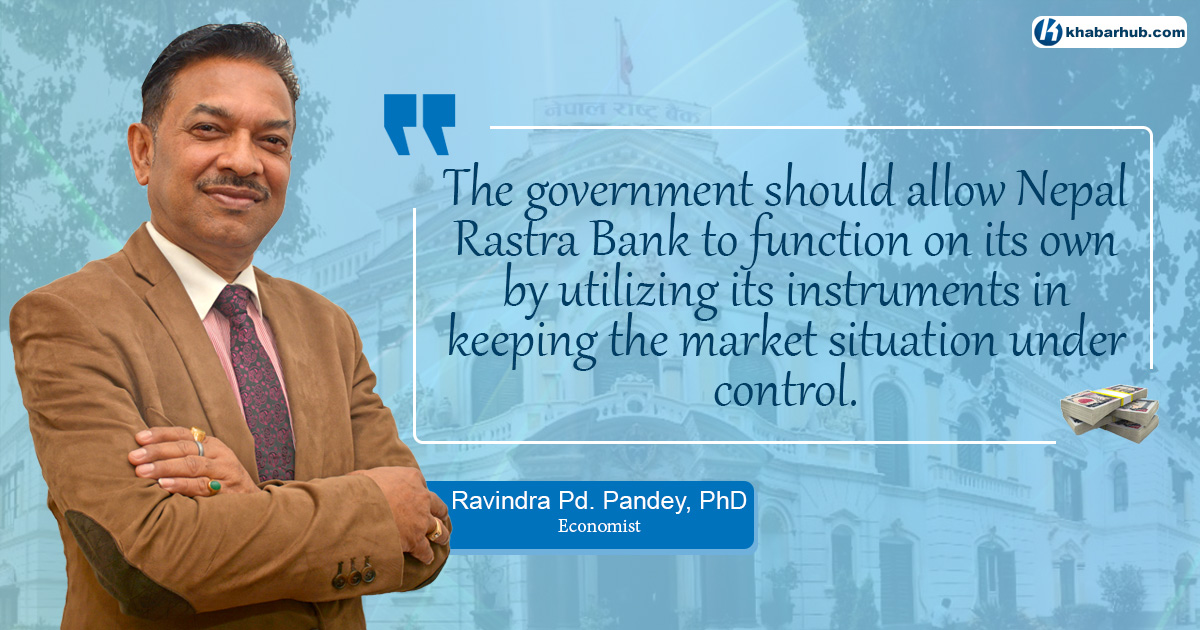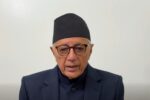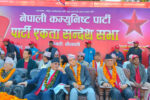In recent years, central banks have become more and more independent from government .In an independent Central bank monetary policy is delegated to UN elected officials and that the government’s influence on monetary policy is restricted.
However, the general notion towards the central bank and its roles have been changing regularly over time and been different among countries with politicians and economists only theoretically shifting their stance in the direction of the ‘independence’ of central banks, moving strongly towards the adoption of the Bundesh bank arrangements and procedures as the ideal central bank model.
In fact when the US Federal Reserve System was set up in 1913, it was ensured that the system remained independent from the duly constituted government authorities and partisan political interests.
It is to be noted here that the focus of discussion of the role of the central bank in this context concentrates on only one aspect of the full set of responsibilities borne by central banks in many countries – that of the operation of monetary policy thereby undermining the supervisory role of many central banks.The separation of monetary policy from bank supervision is easy enough to accept at one level particularly both because it is practiced in several countries and because there are some clear arguments for it based principally upon moral hazard.
In the modern debate over the independence of central banks, ‘independence’ has taken on the simple meaning of independence from the political institutions and processes of the country as politicians virtually in all parts of the world are biased towards ‘easy money’as well as ‘inflation’. In fact when the US Federal Reserve System was set up in 1913, it was ensured that the system remained independent from the duly constituted government authorities and partisan political interests.
There can be no doubt that rapid inflation, by reducing the real value of money, undermines public confidence in money as an asset and strikes at the basis of a modern monetary economy and hence an efficient market economy.
Modern political and economic theory has, however, gone well beyond the generalized suspicion of politicians and has formalized the arguments in favor of this form of independence in a number of ways. Thus, we have the theory of political cycles as a criticism of the short-run motivation of politicians; public choice theory as a criticism of the self-interest of both politicians and bureaucrats; arguments for the irrelevance of demand-management policy and the notion of time inconsistency policy based upon rational expectations. This is all supported by empirical evidence implying the absence of a long-run trade-off between inflation and unemployment and the apparent relative success in the control of inflation of countries with relatively independent central banks.
In spite of these, however the assumption is that if countries with politically independent central banks are successful at maintaining low rates of inflation, the central bank must in some sense have control over monetary policy and the monetary system. But, this may not be so like in our case where the ‘peg’ imports inflation besides other things and as a result our monetary policy may not be as effective as visualized.There can be no doubt that rapid inflation, by reducing the real value of money, undermines public confidence in money as an asset and strikes at the basis of a modern monetary economy and hence an efficient market economy.
We know that changes in the interest rates occur quite frequently in all types of economy and policy accords much more with the ‘discretionary’ label.We are led to believe that the central bank would have the power to control demand through the interest rate if it chose to exercise it, however it does not need to do this as long as financial markets believe that it could and would do so if required.
We know that, virtually all central banks, operate monetary policy through control of short-term interest rates. This is meant to influence the full spectrum of interest rates and through this aggregate demand, the demand for credit, bank deposits and hence the rate of growth of the money supply.
Nonetheless, economists continue to debate at some length whether interest rate policy should be decided on the basis of some measure of the money stock or a final target such as nominal GDP, the level of prices or the rate of inflation. In practice, central banks are likely to make their decisions about interest rate policy on the basis of changes in a number of indicators main among which are the rate of growth of the money supply, the rate of growth of demand, unemployment figures and other evidence concerning pressure within labor markets, the rate of inflation shown by various price indices, and exchange rates. We know that changes in the interest rates occur quite frequently in all types of economy and policy accords much more with the ‘discretionary’ label.We are led to believe that the central bank would have the power to control demand through the interest rate if it chose to exercise it, however it does not need to do this as long as financial markets believe that it could and would do so if required. Thus, the central bank operates through a series of signals to the financial markets. The catch is that these signals only have power as long as the financial markets believe that the policy of the central bank is ‘credible’, by which is meant that the central bank follows the path that the markets think it should do in order to achieve the target which the markets accept as desirable.
Similarly the Act has fully empowered Nepal Rastra Bank to enact independently among others on the formulation as well as execution of the Foreign Exchange as well as Monetary policies.
However, if the central bank’s policy is not held to be credible, and if it does wish to achieve a low rate of inflation, it will need to push interest rates up much faster and much further than would otherwise be necessary in order to overcome the skepticism of markets. This, almost inevitably, will produce a much deeper recession that would otherwise have been needed.
Now the question would be whether or not it actually matters who makes the interest rate decisions? If politicians make them, we know, markets will not believe in the authorities’ determination to control inflation, the policy will not be credible and the economy will not respond to small interest rate changes. But what would follow if an ‘independent’ central banks chose, against market expectations, to follow an expansionary path? Surely, the outcome would be exactly the same as if the decisions had been made by politicians. The present situation in the country is of the second type.
In the prevailing present situation of increasing interest rate day by day, the question arises whether Nepal Rastra Bank, the central bank uses the market mechanism to control the up shoot of interest rate and if it cannot,spears a space for the government to take chances.
More importantly, at present, Nepalese economy has been witnessing BOP deficit and in this context, controlling interest rate would further aggravate the external sector risk.
The Nepal Rastra Bank Act 2002 has levied autonomy to some extended degree: whereby
Section (2) subsection (3) of the Act reads “The Bank shall be an autonomous and corporate body with perpetual succession. Similarly the Act has fully empowered Nepal Rastra Bank to enact independently among others on the formulation as well as execution of the Foreign Exchange as well as Monetary policies.
The appointment of the Governor, the Deputy-governors as well as the Board of Directors (Sections 15, 16, and 17 of the NRB Act) are appointed for a fixed period of terms
Section 22 of the Act has imposed strong Grounds,in case the Governor, Deputy- Governor or any Director of the Bank is to be removed. However GON shall not deprive the concerned person from a reasonable opportunity to defend himself prior to removing him from his office. This in any case has tied up the hands of those trying to act upon any kind of biasness. Section 23 has made provision of the Inquiry committee in case the Governor is required to be dismissed.
The Nepal Rastra Bank Act 2002, has provided the opportunity to Nepal Rastra Bank to act independently, however independence does not occur merely on papers: It is based on how much of the power that the Bank can really bring into existence.
Under such circumstance, it is thought advisable that the government not intervene in the matter of adjustment of the rate of interest and let the termed Independent Central Bank (Nepal Rastra Bank) use its instruments in bringing the situation under control.Controlling interest rate forcefully may result in unwanted consequences. We are in the mixed economy, market has more power to decide the price efficiently than the government. More importantly, at present, Nepalese economy has been witnessing BOP deficit and in this context, controlling interest rate would further aggravate the external sector risk.Central bank should support the government for the noble cause but not at the cost of macroeconomic stability.Any type of unwanted intervention by the Government as well as undermining the Independence of the Central Bank will not help in permanently solving the problem and rather misalign totally the philosophy of Market Economy thereby distorting the total economic cycle.









Comment